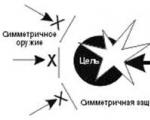An attempt to force a person to purchase additional services and incur extra expenses is regarded by law as a violation of consumer rights.
Such actions of sellers are illegal and entail penalties.
What services are being imposed on us and what should the consumer do in this situation?
 The key document protecting the rights of buyers is Federal Law No. 2300-1 “On the Protection of Consumer Rights”. According to Art. 16 of this law, the seller does not have the right to impose on the buyer a product or service in addition to the main ones.
The key document protecting the rights of buyers is Federal Law No. 2300-1 “On the Protection of Consumer Rights”. According to Art. 16 of this law, the seller does not have the right to impose on the buyer a product or service in addition to the main ones.
If, as a result of the imposition, the buyer incurs additional financial losses and thereby his rights as a consumer are violated, then the seller is obliged to compensate for all losses incurred by the client.
The terms of the concluded agreement are recognized in this case as invalid.
Today, consumers often complain that insurance services are forced on them. For example, credit institutions often force clients to take out life, health or property insurance when applying for a loan.
But insurance is an autonomous service that has no direct connection with the provision of a loan.
The imposition of insurance services often occurs when car owners take out MTPL policies.
 The insurance companies themselves force their clients to issue, in addition to compulsory insurance, secondary insurance documents. As a result, the car owner incurs extra costs by purchasing a secondary service that he may not need at all.
The insurance companies themselves force their clients to issue, in addition to compulsory insurance, secondary insurance documents. As a result, the car owner incurs extra costs by purchasing a secondary service that he may not need at all.
Such actions by insurers are a violation. From the point of view of the Civil Code of the Russian Federation (Article 426), a commercial organization does not have the right to refuse to provide a basic service to a client if they do not want to purchase an additional option.
How to distinguish imposition from promotions and bonus offers?
If the buyer is given a choice: buy several products at a discount or buy just one, but at market value, then this is a promotion.
And when the buyer is told that an item or service is not sold on its own and can only be bought in a set with others (provided that this product is available in a piece version) - this is an imposition of services.
The above law prescribes consumer rights such as:

If such a situation arises, it is enough for the consumer to voice the articles from the law protecting consumer rights.
If this does not work, then the buyer has the right to complain to the seller demanding reimbursement of all expenses in the amount of 100%.
The most relevant examples of imposed services today:
- imposition of insurance services by the bank when concluding a loan agreement;
- imposition of additional medical services and medications;
- imposition of mobile communication services;
- inclusion of extra clauses in housing and communal services contracts;
- provision of notary services;
- imposing an intermediary service for processing large purchases.
 Today, about 70% of Russians use accounts or cards issued by Sberbank. This is very convenient for making various payments.
Today, about 70% of Russians use accounts or cards issued by Sberbank. This is very convenient for making various payments.
However, some citizens complain that when opening a debit or plastic account, they are also forced to use credit cards, positioning it as a gift. What to do in such a situation?
First of all, remember: purchasing or not purchasing any banking product is not an obligation, but your right, and no one can force you to issue a card.
Until you activate the card through an operator or at an ATM, it is an ordinary piece of plastic, not tied to any specific account, for which you do not need to pay anything.
Pay attention! If you activated a credit card and then decided to cancel it, you will be required to first pay for the annual service and only then close the account by writing an application to the bank.
How to properly refuse an imposed Sberbank credit card so as not to tarnish your credit history; After all, perhaps in the future you will need to take out a loan here?
 In this case, it is best to write an application to refuse the card and, if necessary, an application to refuse the processing of personal data.
In this case, it is best to write an application to refuse the card and, if necessary, an application to refuse the processing of personal data.
If you receive a message from the bank that a credit card has already been issued, then write a complaint online to [email protected] or submit it to the bank in person.
The second option is to wait 2 months from the date of receipt of the message, after which the plastic will be destroyed automatically at the bank branch.
The cost of compulsory insurance has remained unchanged since 2003. In a market economy and inflation, such long-term static prices have become unprofitable for insurers.
Insurance companies are required to provide the service of issuing a motor vehicle policy, regardless of market conditions.
As a result, insurers began to load OSAGO with various additional services (“extras”), while coming up with all sorts of tricks to persuade drivers to purchase them.
 What “extras” are imposed by insurers? The most popular policies offered as part of the auto insurance policy:
What “extras” are imposed by insurers? The most popular policies offered as part of the auto insurance policy:
- Life and health insurance for car owners or passengers.
- Property insurance.
- CASCO.
The most popular additional services under MTPL:
- Departure to the scene of an accident by an emergency commissioner.
- Providing a free car lawyer.
- Tow truck at the expense of the insurer.
- Passing a technical inspection from a business partner of the insurance company.
- Additional technical inspection of the car by an insurance expert.
- Payments of compensation without a discount for wear and tear.
What tricks do insurers use to sell extra extras? The most common of them:
- lack of forms for compulsory motor liability insurance;
- software failure;
- lack of available managers.
Here's how you can protect yourself:

To protect your own interests, you must provide evidence confirming the fact of violations in the organization’s actions (documents, audio and video recordings, witness statements, etc.)
If the manager ignores the client’s statement, you can contact the following authorities:

The claim statement contains the following information:
- name and details of the authority;
- personal data of the applicant (anonymous complaints are not considered);
- name and details of the organization;
- description of the situation in which unnecessary services were imposed;
- information about the availability of evidence;
- indication of links to violated norms of law;
- applicant's requirements;
- date and signature.
Copies of contracts, receipts and other supporting documents are attached to the complaint.
 The imposition of additional services leads to administrative liability borne by the legal entity in the form of:
The imposition of additional services leads to administrative liability borne by the legal entity in the form of:
- fine;
- refund to the consumer of the amount paid for the service;
- declaring the transaction invalid.
There is no article in the Criminal Code of the Russian Federation for imposing services. But some transactions in the field of insurance or taking out loans are qualified under Art. 167 of the Criminal Code as causing damage to property by deception or abuse of trust.
So, in order not to receive an unnecessary service, you must:
- carefully read the terms of contracts;
- ask questions to clarify unclear clauses of the contract;
- do not be afraid to refuse unnecessary services;
- know your consumer rights.
Forcing services to consumers is a common violation. The most common imposed service is insurance. Almost every loan recipient is faced with a “persuasive request” from the bank to pay for the services of the insurance company.
At the same time, not every citizen knows that he can easily refuse to sign an insurance contract.
Another popular type of imposed services is additional paid functions of a mobile operator. In this case, the consumer may not even know that such services are connected to him.
Legislation regulating imposed services
Consumers can protect their rights by using:
- Consumer Protection Law, where it is stated that imposed services are not allowed in legal relations between the consumer and the contractor in any form. In particular, it says that if the contract entails losses for the consumer or infringes on his rights, then it is declared invalid.
- Code of Administrative Offenses. It provides for performers who impose additional services on consumers in the form of a fine, the maximum amount of which is 50,000 rubles.
There is no criminal liability for such actions.
How to act as a consumer
In order to protect yourself from the imposition of services on the consumer, you need to perform the following actions.
Please note
The legislator determines the jurisdiction of the seller when attempting to deceive the buyer. Thus, if the amount of the claim is less than 50 thousand rubles, they are considered by district courts. If the amount is larger, the case is transferred to the magistrate’s court. Read more about jurisdiction - read this
- Carefully study the contract before putting your signature on it. Some clauses of the contract may assign the consumer the obligation to perform additional actions, and then it will be much more difficult to challenge their completion.
- Before concluding a transaction, find out from the seller or contractor the terms of purchase of goods or provision of services. In particular, you need to find out about the opportunity to refuse additional services and purchases.
- If a consumer has a disagreement with an employee of an organization, the first thing to do is try to resolve it with the help of the manager.
- If it was not possible to resolve the issues that arose orally, then the consumer needs to put his complaints in writing and send them to the head of the organization. The letter is drawn up in 2 copies. One remains with the consumer, the second is sent to the addressee by registered mail with notification of receipt.
- If the requirements set out in the letter are refused, the consumer must contact third-party organizations to protect their rights. Depending on the situation, these may be public organizations, authorities or the court.
The rules for protecting rights from an imposed service are not contained in the articles of the Civil Code of the Russian Federation, but, as in any other case, the consumer will need to prove the existence of violations on the part of the contractor. Evidence may include written documents, audio and video recordings, witness statements, etc.

Where to go to protect your interests
So, when imposing services, the consumer can protect his rights in the following bodies:
Rospotrebnadzor
This is the main body dealing with consumer protection. You must contact them in writing, providing evidence of the illegality of the performer’s actions. For example, if a bank imposes on you the services of an insurance company, you can record a conversation with a bank employee on audio media or provide Rospotrebnadzor with a copy of the contract, where insurance of collateral is indicated as an obligation for the consumer.
Prosecutor's office
The country's main supervisory body, which considers violations of citizens' rights by public and private organizations. You can submit applications to the prosecutor's office, for example, if the rights of car owners are violated when applying for an MTPL policy.
Federal Antimonopoly Service
Responsible for regulating legal relations in the financial system. In particular, its competence includes regulating the rules for concluding transactions between credit institutions and borrowers.
Court
It is necessary to seek protection of violated rights in court when applications to other authorities have not brought the necessary results. It should be remembered that a statement of claim to the court is subject to a state fee, and the consideration of the case may take several months.
Thus, imposing a service under the consumer protection law is unacceptable, but many organizations still continue to resort to “voluntary-compulsory” insurance, connecting paid functions, etc. To protect their rights, the consumer should not sign an agreement containing imposed additional services and seek help from the competent authorities.
A specialist will answer your questions in the comments to the article
Life and health insurance when obtaining a car loan from a bank (or a regular loan), additional options when purchasing compulsory motor liability insurance, connection of paid options by a mobile operator. These are all examples of imposed services.
This article, using detailed examples, addresses 4 questions:
- How to get rid of imposed services when obtaining a car loan?
- How to refuse insurance when receiving a bank loan?
- How to refuse insurance when purchasing a compulsory motor liability insurance policy?
- How to get money back for mobile operator services that you did not subscribe to?
And most importantly, which ones - specific ones! - articles of which laws to rely on when refusing imposed services and demanding a refund for these services.
What articles of law should you rely on to prove your case?
The most basic law that lawyers use, relieving their clients of the need to pay for imposed services, is the law “On the Protection of Consumer Rights.” It provides the necessary basis for refusing imposed services:
- Article 10 “Information about goods (works, services)”: the contractor is obliged to promptly provide the consumer with the necessary and reliable information about the goods, works and services... Price in rubles and conditions for purchasing goods.”
It is important to know: that is, the seller must communicate the terms of purchase before purchasing. Because after the purchase it is definitely untimely.
- Article 13 “liability for violation of consumer rights”: “losses caused to the consumer are subject to compensation in full in excess of the penalty established by law or contract”;
- And most importantly: Article 16 “Invalidity of contract terms that infringe consumer rights,” which establishes that the purchase of some goods and services cannot be made conditional on the need to purchase other goods and services. The so-called “load” ended with the Soviet Union.
- In addition, it is specifically stated that the seller cannot perform additional work or services for a fee without the buyer’s consent.
It is important to know: if the seller performed work for a fee without the buyer’s consent, and the buyer paid for this work, then he may demand that the seller return the amount paid (Part 3 of Article 16 of the Law “On Protection of Consumer Rights”). And even more than that - if the seller made the sale of a product or service dependent on the purchase of another product or service, and the buyer agreed, then he, the buyer, can demand compensation for losses (Part 2 of Article 16 of the Law “On Protection of Consumer Rights”). Remember these two rules set out in parts 2 and 3 of Article 16. They will be very useful.
4 examples of imposed services and what should be done in each of these cases
It is important to know: if you suspect that a service will be imposed on you - at the bank when receiving a loan or when applying for compulsory motor liability insurance - take a voice recorder with you. The recording will be proof that you are right. This is not paranoia, but reasonable prudence.
Example 1:
A Muscovite came to the bank to apply for a loan to buy a car. Amount - 500,000 rubles. However, the contract specified insurance, three of them: CASCO, MTPL, life insurance. The cost of these insurances is another 110,000 rubles. The bank employee said that these insurances are mandatory and serve as a guarantee for the bank to repay the loan. The client said that he did not need any insurance. In response, the bank employee said that “everyone agrees and no one has regretted it yet,” “you will feel confident,” “the bank most likely will not approve a loan without insurance,” and “if without insurance, the interest rate will be much higher.” .
- What is broken: Part 2 of Article 16 of the Law “On Protection of Consumer Rights”, which prohibits conditioning the purchase of goods or services on the need to purchase other goods and services.
- What to do if these conditions are imposed on you: demand to change the contract by removing clauses on “voluntary” insurance from it, refer to the law “On the Protection of Consumer Rights”. Have a voice recorder turned on. A recording of a conversation with a manager will be excellent evidence of imposition of a service in court.
- What to do if you signed an agreement with the bank on its terms: seek qualified legal assistance and prepare for court. Writing a claim to the bank does not give anything in 99% of cases. A letter comes from the bank, the meaning of which is that “you yourself signed the contract, all insurance is voluntary, you could refuse them, and since you agreed, you pay.”
To terminate insurance contracts, you will have to go to court. To do this, you need to draw up a competent statement of claim. Since we are talking about a complex of legal relations (a car loan is one thing, and insurance contracts are another), the claim will be quite voluminous and complex. It is better to have it compiled by a professional.
It is important to know: in the case of loan interest, the situation is interesting. Judicial practice generally recognizes the dependence of interest on insurance as legal. Insurance is issued - the percentage is lower. No insurance - the percentage is higher. But the percentage difference should be reasonable. For example, if the interest rate on a loan with insurance is 21% per annum, and without insurance - 45% per annum, then the court is unlikely to decide that this is reasonable. The court will evaluate everything, and a professional lawyer is needed to present your position in the most favorable light for you.
Example 2:
A resident of Moscow took out a loan in the amount of 120,000 rubles. The borrower was forced to insure life and disability, stating that this was a mandatory condition for obtaining a loan. The cost of insurance is 23,700 rubles. In addition, they imposed information support for 4,000 rubles. As a result, the borrower received 92,300 rubles instead of the expected 120,000.
- What is broken: Part 2 of Article 16 of the Law “On Protection of Consumer Rights”.
- What to do if the following conditions are imposed on you: remind the bank employee that “it is prohibited to condition the purchase of goods and services on the need to purchase other goods and services, and the seller must compensate in full for losses caused to the consumer” and demand that you be given a loan without an insurance contract.
- What to do if a bank employee refuses: contact us and experienced lawyers will draw up a pre-trial claim; the bank will probably not want unnecessary troubles and will issue you a loan without insurance.
- What to do if you have already signed an agreement on the bank’s terms: all the more necessary to contact specialists. Most likely, you will have to go to court and demand in court the termination of the insurance contract. Legally this is not an easy matter. You can't do it without a professional representative.
Example 3:
A resident of Moscow wanted to take out MTPL insurance. At the insurance company branch he was told that it was impossible to obtain insurance without life and health insurance. “This is a set of services”, “we have these rules”, “there are no forms” - these were the explanations.
- What is broken: the same thing - Article 16 of the Law “On Protection of Consumer Rights”.
- What to do: remind about the law “On the Protection of Consumer Rights” and threaten with complaints to the Prosecutor’s Office, the Central Bank, and Rospotrebnadzor. Take a voice recorder with you so that you have something to attach to the complaint.
It is important to know: Part 4 of Article 445 of the Civil Code states that if an insurance company refuses to enter into an insurance contract, then you can file a lawsuit to force the company to conclude an insurance contract. You can also tell the insurance company employee about this.
- What to do if you signed a contract on the terms of an insurance company: contact Lawyer-Expert24 to write a pre-trial claim. Prepare for the fact that you will have to file a lawsuit in court.
Example 4:
A resident of Moscow received an SMS message in which the mobile operator informed the subscriber that he was connected to a paid service. Its cost is 20 rubles per day. The subscriber refused, but at the same time requested details of the bill for the last month. And then it turned out that the telecom operator had connected this service to him a month ago and was debiting him 20 rubles every day. In a month I collected 600 rubles.
- What is broken: Part 3 of Article 16 of the Law “On Protection of Consumer Rights”, which states that the seller cannot perform additional work or services for a fee without the consent of the consumer.
It is important to know: in disputes with telecom operators, one must rely not only on the Federal Law “On the Protection of Consumer Rights,” but also on the Federal Law “On Communications” and the Decree of the Government of the Russian Federation No. 1342 “On the procedure for the provision of telephone services.”
- What to do: demand a full refund of the fee for a service activated without the subscriber’s consent. Focus on:
- subparagraph “b” of paragraph 26 of the Government of the Russian Federation Resolution No. 1342 “On the procedure for the provision of telephone services”, which states that the subscriber has the right “to refuse to pay for communication services provided to him without his consent”;
- Part 3 of Article 16 of the Law “On Protection of Consumer Rights”, which states that the seller cannot provide services for a fee without the consent of the consumer. The consumer has the right to refuse to pay for services provided to him for a fee without his consent, and if these services have been paid for, to demand a refund of the amount paid.
Or contact us, and specialists will do everything without your participation. You will only get your money back.
It is important to know: Article 55 of the Law “On Communications” establishes that claims against operators can be considered up to 60 days.
Why should you contact a lawyer?
- Because employees of companies that impose services are masters at inventing excuses. “This is a package of services,” “these services come under a single agreement,” “we have these rules,” and so on.
- Because attempts to return the money result in long correspondence, numerous trips to the office, loss of time and hassle. When you know that you are right, but they don’t give you the money, it really infuriates you.
- Because if we are talking about a substantial amount, then a dishonest company may decide not to give you the money “in an amicable way”, but to go to court. In this case, full compliance with civil procedure is required. It is very disappointing to lose because of a trifle, being essentially right. And even reimburse the insolent lawyer’s expenses.
- On the other hand, when you emerge victorious from this legal battle, the losing party will reimburse you for the costs of paying our specialist (Article 96 of the Civil Procedure Code).
So there is every reason to turn to professionals for help. You will save time, nerves and even spend nothing.
If we are talking about a small amount, then there is a temptation to leave everything as it is and do nothing. But such a decision is indirect support for the impudence of the company that imposed its services on you. If you are reading this article, it means you are determined to take action. Us too!
We suggest you start with a consultation. At Lawyer-Expert24 it is completely free and does not oblige you to anything. Just ask questions, get answers - and you can leave without paying a ruble.
Hurry up. In the case of imposed services, there is no need to delay. The sooner you contact us, the sooner you will receive the money that was essentially defrauded from you. Call or write a message in the form below. Impudence cannot be left unpunished.
Imposition of services is forcing the buyer to enter into an oral or written agreement to purchase, in addition to the desired product or service, an additional paid benefit.
Today, quite a lot of organizations abuse their position and try to impose on consumers a product that is not in demand or an unpopular service. Actions on the part of entrepreneurs who ignore the right to freedom of choice can be regarded as a violation of the interests of consumers of goods and services.
What services can be considered imposed?
Modern world and national economies operate in conditions of economic freedom of choice, which consists in the possibility of freely choosing quality goods and services, ways to satisfy one’s needs and requirements, depending on one’s income and prices.

If you discover that the seller has been imposing a service, you should try to convey the relevant information to the administration. This can be done either in the form of an oral or written statement, or by writing to the Book of Complaints and Suggestions.
The imposition of additional benefits falls under administrative responsibility borne by the seller, legal entity or other performer. For a proven violation, these entities may be held liable in the form of a fine.
In addition, it is useful to attach copies of contracts, checks, and other documents to the application. When filing a statement of claim - copies of documents that indicate attempts to pre-trial resolve the issue.
Correctly stated requirements and a detailed description of the essence of the violation in a complaint to the competent authority will help restore the violated rights in full.

 The key document protecting the rights of buyers is Federal Law No. 2300-1 “On the Protection of Consumer Rights”. According to Art. 16 of this law, the seller does not have the right to impose on the buyer a product or service in addition to the main ones.
The key document protecting the rights of buyers is Federal Law No. 2300-1 “On the Protection of Consumer Rights”. According to Art. 16 of this law, the seller does not have the right to impose on the buyer a product or service in addition to the main ones. The insurance companies themselves force their clients to issue, in addition to compulsory insurance, secondary insurance documents. As a result, the car owner incurs extra costs by purchasing a secondary service that he may not need at all.
The insurance companies themselves force their clients to issue, in addition to compulsory insurance, secondary insurance documents. As a result, the car owner incurs extra costs by purchasing a secondary service that he may not need at all.
 Today, about 70% of Russians use accounts or cards issued by Sberbank. This is very convenient for making various payments.
Today, about 70% of Russians use accounts or cards issued by Sberbank. This is very convenient for making various payments. In this case, it is best to write an application to refuse the card and, if necessary, an application to refuse the processing of personal data.
In this case, it is best to write an application to refuse the card and, if necessary, an application to refuse the processing of personal data. What “extras” are imposed by insurers? The most popular policies offered as part of the auto insurance policy:
What “extras” are imposed by insurers? The most popular policies offered as part of the auto insurance policy:

 The imposition of additional services leads to administrative liability borne by the legal entity in the form of:
The imposition of additional services leads to administrative liability borne by the legal entity in the form of:



 The written complaint must contain the following:
The written complaint must contain the following:














